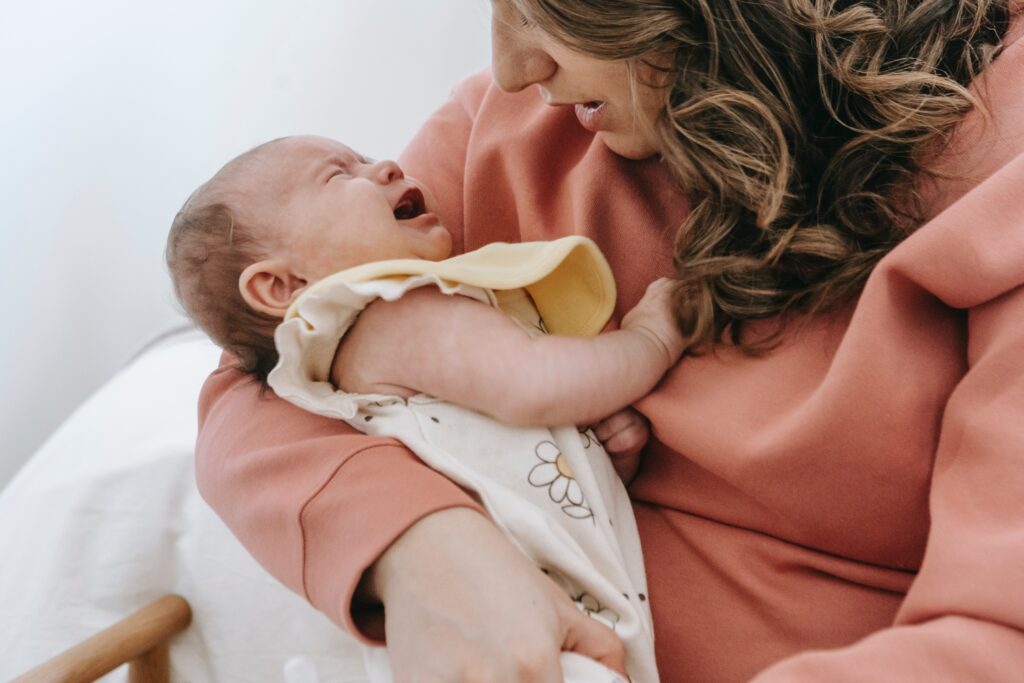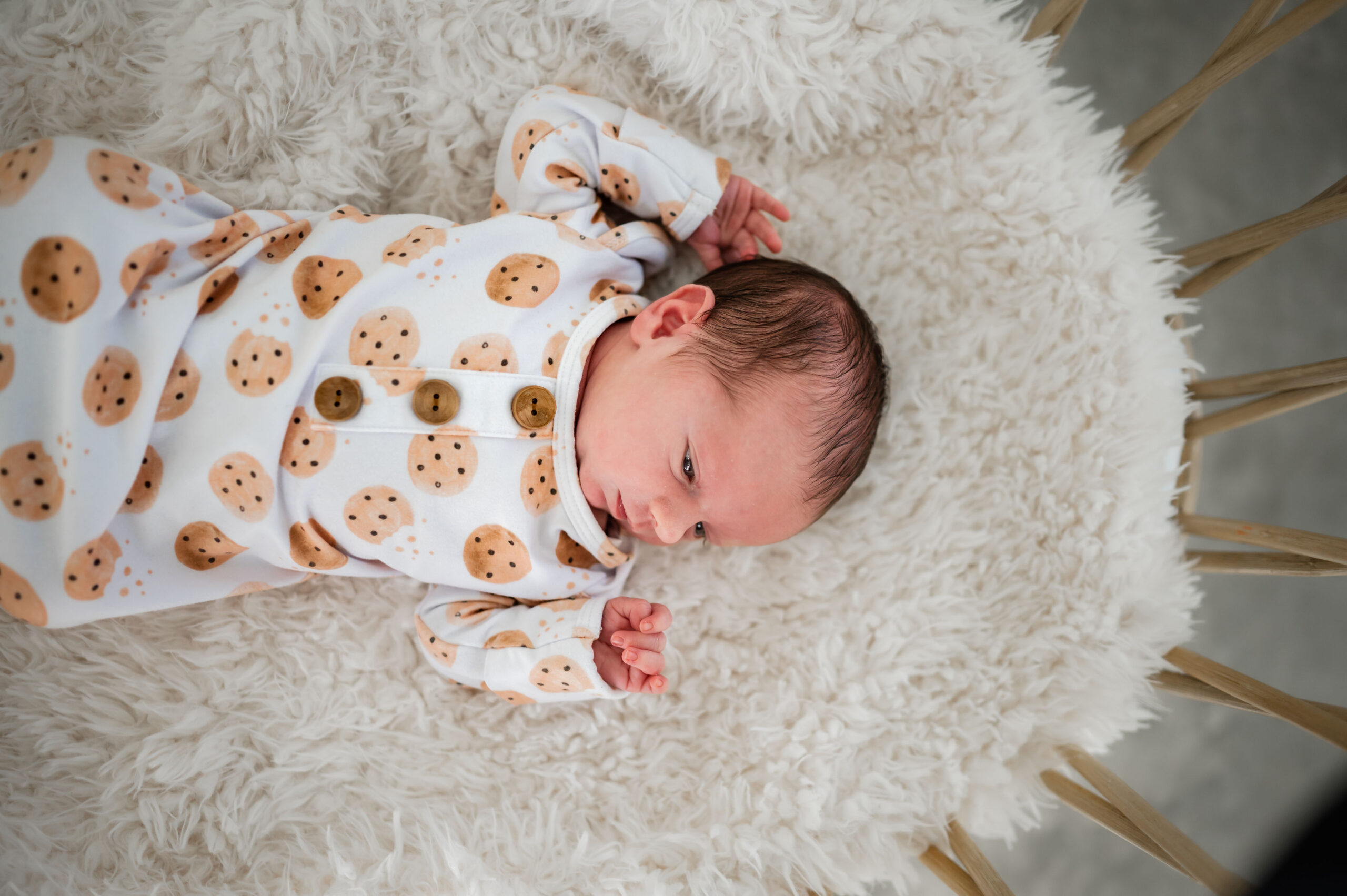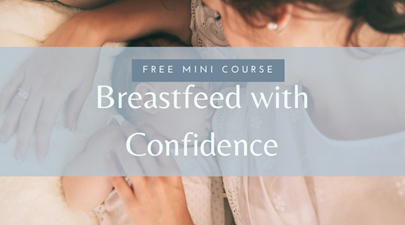Learning about hunger cues will help you breastfeed your baby. Mammals are smart, we are made for survival. Babies are born with instincts to help parents understand when they need something. This article is all about how your baby will let you know that they are getting hungry before they can talk. And let me tell you, it’s not all about crying. By responding to baby’s cues quickly and feeding on demand, your baby will be more satisfied and comforted. Each time you positively respond to baby’s cues, baby knows to keep communicating that way.

Early Hunger Cues
- Gently Awakening
- Sticking their tongue out
- Licking their lips
- Hands to face and mouth
- Opening mouth and smacking lips
- Rooting (wide open mouth)
- Wriggling
- Stretching
Late Hunger Cues
- Loud Fussing
- Crying
- Red face
You will notice early feeding cues when baby is in a quiet alert state, or just waking up.
Optimal Feeding Times
When your baby is showing (or cuing) that they are hungry, it is the most optimal time to feed. If you delay in latching baby onto the breast, then it could result in baby getting overly fussy, red-faced, and outright crying. These times are like when an adult gets hangry and eats the first thing in sight. Babies tend to have shallower latches once they are angry.
How do I know when baby is full or done feeding?
Sometimes, feedings feel like they last forever, Be sure to monitor baby for “passive feeding” or non-nutritive sucking. These tend to look like little flutters. See the video below about active vs. passive feeding. If you can keep baby actively feeding throughout, then it is more ideal. If baby doesn’t release the breast on their own, you may try to fish hook release by inserting a finger in the corner of their mouth to break the latch.
Full babies tend to show they are full by: releasing the breast and coming off asleep, body limp, hands relaxed. Sometimes putting them back down immediately triggers hunger cues again, but at this point they may just want to be comforted. It’s ok to offer the breast again or even just some skin to skin time.
What about older babies?
After 10-14 weeks, babies begin to discover their hands. Some of these cues are not as reliable at this point.
Need help with breastfeeding your baby? Reach out to us to schedule a virtual consultation



Recent Comments